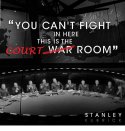Charlot123
Well-Known Member
- Joined
- Jul 29, 2018
- Messages
- 8,865
- Reaction score
- 59,450
I have a question.
Medcabs
Automated medication dispensing systems

 www.taloncontrols.com
www.taloncontrols.com
My question is not only LL’s culpability, but also, how the heck could a nurse draw unaccounted for insulin in the NICU part of the hospital?
What hospital system allows the nurse to draw insulin: 1) without a doctor’s prescription?
2) without any trace in the dispensing system?
It is insulin! And if I remember correctly, she was also accused of adding morphine? A controlled drug? How can a nurse gain access to a controlled drug without any trace? And if she can, that means, anyone can steal morphine from a hospital, and none the wiser?
Maybe Lucy was wrong, but I see a huge system error. If insulin is kept in the refrigerator and the key is passed around, unaccounted for, it is an error on behalf of the hospital. If by the end and beginning of the shift, there is no counting of the insulin vials, it is an error. No comments about LL, specifically, but human factor is a tricky thing. And what if someone decides to take insulin home to take care of the ailing relatives?
About postcards. Personal example. I once knew a lady who was buying amazing postcards made by a local crafter and reselling them at $6 per card. When I found the crafter, I found out that they cost $ 5 from her. So I bought a lot, for b-days and for the coming NY.
Then I started using them. If anyone compares my behavior when I “saved” on postcards with my regular pattern (“who cares about postcards”?), there is a major difference. I have no doubt it can be tied up to malice, if someone wants to. IRL, the explanation is different. There would be an additional peak before the NY, as “2022” is not reusable.
In short, the postcards are not a proof to me. No way. Likewise, some explanations for human behaviors would be unusual, but not necessarily, malicious.
No matter how the trial ends, Chestershire hospital HAS to invest into a better drug distribution system. It is cheaper than dealing with the trial now.
Medcabs
Automated medication dispensing systems

Medcab Delivers Exceptional Care While Lowering Risk
The medcab is one of the best investments a hospital can make in giving nurses more time with patients while reducing their stress and the risk for errors.
My question is not only LL’s culpability, but also, how the heck could a nurse draw unaccounted for insulin in the NICU part of the hospital?
What hospital system allows the nurse to draw insulin: 1) without a doctor’s prescription?
2) without any trace in the dispensing system?
It is insulin! And if I remember correctly, she was also accused of adding morphine? A controlled drug? How can a nurse gain access to a controlled drug without any trace? And if she can, that means, anyone can steal morphine from a hospital, and none the wiser?
Maybe Lucy was wrong, but I see a huge system error. If insulin is kept in the refrigerator and the key is passed around, unaccounted for, it is an error on behalf of the hospital. If by the end and beginning of the shift, there is no counting of the insulin vials, it is an error. No comments about LL, specifically, but human factor is a tricky thing. And what if someone decides to take insulin home to take care of the ailing relatives?
About postcards. Personal example. I once knew a lady who was buying amazing postcards made by a local crafter and reselling them at $6 per card. When I found the crafter, I found out that they cost $ 5 from her. So I bought a lot, for b-days and for the coming NY.
Then I started using them. If anyone compares my behavior when I “saved” on postcards with my regular pattern (“who cares about postcards”?), there is a major difference. I have no doubt it can be tied up to malice, if someone wants to. IRL, the explanation is different. There would be an additional peak before the NY, as “2022” is not reusable.
In short, the postcards are not a proof to me. No way. Likewise, some explanations for human behaviors would be unusual, but not necessarily, malicious.
No matter how the trial ends, Chestershire hospital HAS to invest into a better drug distribution system. It is cheaper than dealing with the trial now.
Last edited:




